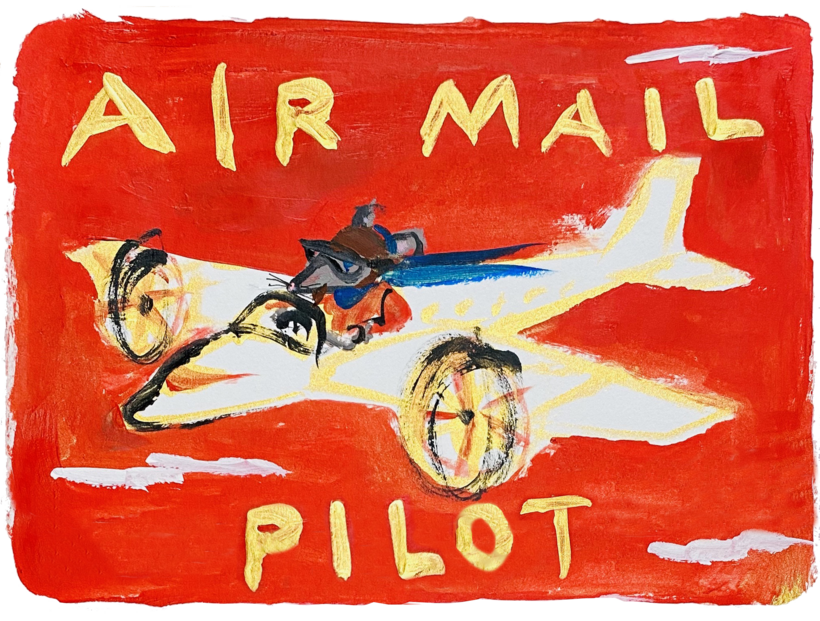1.
Night Owl

2.
Curiosity Saved the Cat

AIR MAIL Pilot suspects you have been told at some point in your life—maybe by a parent, maybe by a teacher or librarian, maybe even by a friend—that you are too old for picture books. Nonsense!
Books with few illustrations, or even none, have their place; but no one is ever too old for picture books. AIR MAIL Pilot, for instance, is old enough to remember when TVs came with knobs and dials, like Fisher–Price play sets, and yet AIR MAIL Pilot is still mad for picture books.

